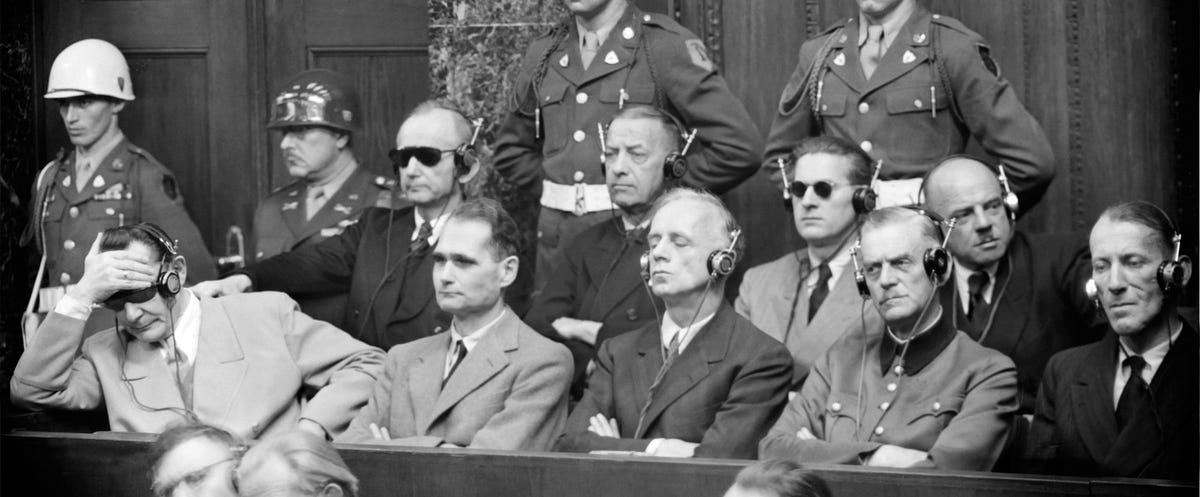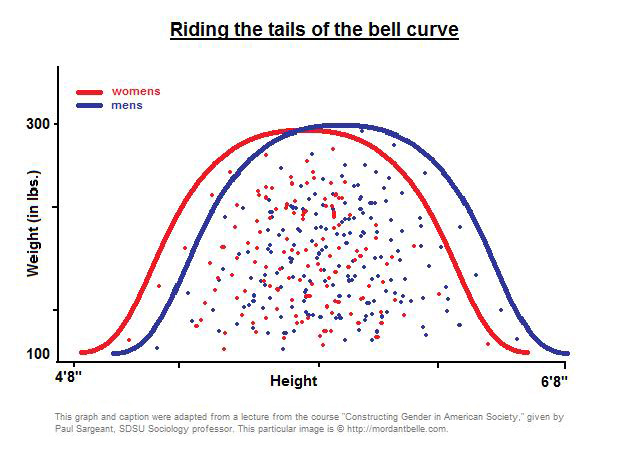Harrison has a recent Substack article titled:
Taking a look at a forgotten classic of ponerology

ponerology.substack.com
Psychopathy at Nuremberg
If not read, people may find this really interesting, especially as it introduces (aside from Lobaczewski) Gustave M. Gilbert, who wrote
The Psychology of Dictatorship and directly studied Hermann Göring by interviews and notes. Another psychiatrist mentioned in the article was Douglas M. Kelley.
In a later book read by David Irving titled
Göring A Biography, Kelley seemed to have also been a go-between - between Göring and his family, taking and bringing letters while at Nuremberg (which are reproduced). Irving also cites Kelley "Dr. Douglas M. Kelley,
the junior prison psychiatrist" dotting on Göring, as with some of Hermann's American spellbinded, or they were something else, such as Lieutenant Jack G. Wheelis (who may have provided Göring with his fatale dose - Wheelis died in 1954), or it was Dr. Ludwig Pflücker, or both or neither.
Of Kelley in the citations:
Kelley: As a result of petty jealousies that arose between Kelley and his superior officer, Gustave M. Gilbert, Kelley left Nuremberg “under a cloud,” and published a book based on Gilbert’s consultation notes, Cells in Nuremberg. The author has relied on Gilbert’s original notes (in the R. H. Jackson Papers)
So, Kelley looked to have been doing some note plagiarizing on the side to create his book (that is from just this citation so do not know, however if there was a "cloud" there was a cloud).
As for the four above (Gilbert, Kelley, Wheelis and Pflücker) primarily at Nuremberg, Irvine via Gilbert makes some observations that had not been read before or were contained in the
Psychology of Dictatorship, so this was interesting in light of the article by Harrison.
Pg. 715
After Ley’s suicide, Andrus redoubled the security precautions. Göring was repeatedly strip-searched, his private effects were picked through zealously, and he was often moved without warning to a different cell. Asked by Andrus to report, the new psychiatrist Dr. Gustave M. Gilbert assured the commandant that Göring was a very low suicide risk. At 138, Göring’s I.Q. was inferior only to Hjalmar Schacht’s (143) and Arthur SeyssInquart’s (141). In fact, Göring’s morale was so high that he was likely to prove their most troublesome defendant. When Gilbert remarked that the German public now openly regretted that the attempt on Hitler’s life had failed, Göring roared at him. “Never mind what the people say now! I know what they said before! I know how they cheered when the going was good.”
In the trial, Göring is basically the number one Nazi left, and he has an big audience (least the German people who were not in a good way). During sentencing, with exception of a few top brass, Göring had it in for many who were betrayers (many were pathocrats saving their own skin), he would say, such as Hjalmar Schacht (who he never liked) - Schacht walked away and years later started a new bank, go figure. The Russians were not pleased, but the British seemed to be okay with it.
Pg. 736
Die, yes - but not by the hangman’s hand. Göring let it be known to Jackson that if guaranteed a firing squad he would give the prosecution some real dirt on Schacht.
Pg. 750
Not a flicker of emotion had crossed Göring’s brow. But when Biddle now announced Schacht’s acquittal, he slammed down his earphones in disgust.
From Citations:
Schacht, Hjalmar:
Account Settled (London, 1948)
-------------: Memoirs published in Revue (Munich, No. 45, 1953)
-------------: 76 Jahre meines Lebens (Bad Wörishofen, 1953)
-------------: Wie eine Demokratie stirbt (1968)
Note: While the lens is easy to look at Göring and so many others, there are indeed the pathocrats who may fly under the radar, such as a Schacht - these are the underbelly builders, not unlike some at the WEF or within banking concerns or other captains of industry. Many such as Schacht are discussed in books on I.G. Farben or arms merchants going back centuries. They are in the background, and they may not string wires in the camps or directly produce vaccines, yet they make them possible and help create the conditions for their use.
The actions of [
pathocracy]
affect an entire society, starting with the leaders and
infiltrating every town, business, and institution. The pathological social structure gradually covers the entire country creating a "new class" within that nation. This privileged class [of pathocrats] feels permanently threatened by the "others", i.e. by the majority of normal people. Neither do the pathocrats entertain any illusions about their personal fate should there be a return to the system of normal man.
- Andrew M. Lobaczewski
See also
Hermann Goering, amiable psychopath by Gilbert
Abstract
With a good deal of new material the author of Nuremberg Diary tells the life history of the number 2 Nazi, showing consistency from early childhood in the development of Goering's peculiar psychopathy. Constitution played its part in his abilities and sadistic, aggressive leadership, but lack of feeling for others was due in part to the cold Prussian home life. Fed on Teutonic legend and Junker militarism, he believed deeply in loyalty to the Kaiser, military chivalry, military aristocracy, and German superiority. Peaceful or democratic people were repulsive to him. Never able to take punishment or to benefit from disapproval, he was completely self-centered. The Nazi party provided opportunity for military power, loyalty to an absolute Führer, sadistic excitement, revenge against enemies, and unlimited financial gain. He was shocked to realize that other Nazis were so unchivalrous as to wipe out populations of women and children. (He overlooked the similar effects of his Luftwaffe raids.) When rebuffed, he early learned to escape in phantasy, illness, or drug addiction. Play acting as an amiable nobleman served his phantasy needs. At Nuremberg he gave a fine performance, but the final indignities spoiled his heroic pose. (PsycInfo Database Record (c) 2021 APA, all rights reserved)



